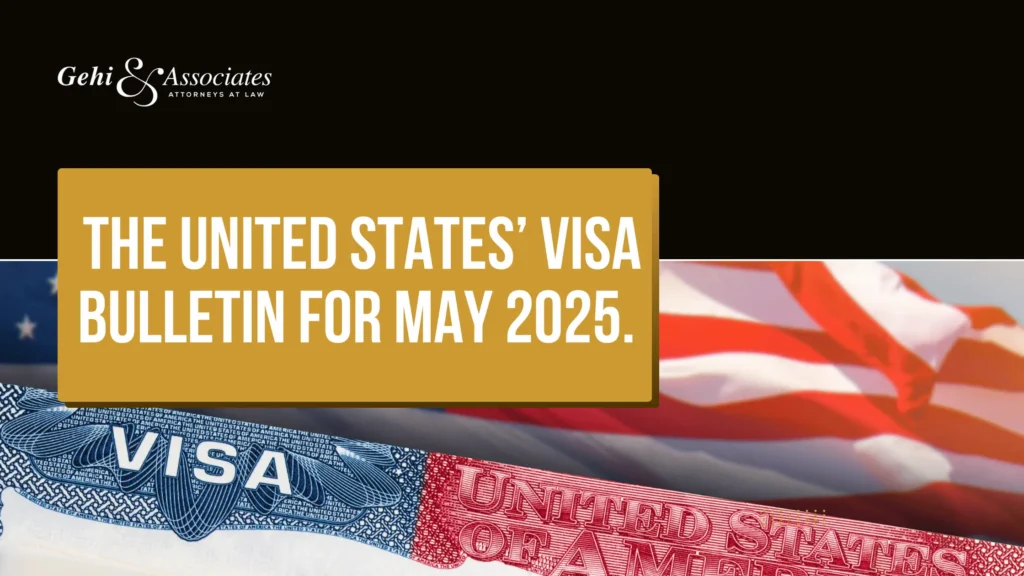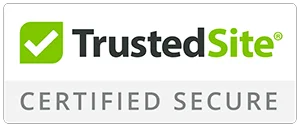Blog Categories
Recent Posts
Practices Areas

Introduction
The J-1 Au Pair visa is a great chance for young folks aged 18-26 to live in the United States and look after a host family’s kids. This program, run by the US Department of State, is set up to help people from different countries get to know each other better by having au pairs and host families interact every day and share chores.
According to the USCIS, this setup helps with learning and work, and makes sure that both the au pairs and host families get a fair deal out of the J-1 exchange program. An immigration lawyer in Houston, TX can be helpful in this regard.
Overview of the J-1 visa
The J-1 visa is for people who want to join an exchange program that has been approved for teaching, instructing, giving lectures, studying, watching, doing research, giving advice, showing off skills, getting training, or learning about graduate medical education.
The US Department of State will pick out both public and private groups to be exchange sponsors for the Exchange Visitor Program. So, people with J-1 visas are basically sponsored by a program that the US Department of State has given the approval for.
These programs are all about exchanging people, knowledge, and skills in areas like education, arts, and science. Learn more about this program by talking with an immigration lawyer in Houston, TX.
The relationship between the J-1 visa and the AuPair program
The Au Pair program in the US is super-regulated by the US State Department and overseen by specific agencies. To join the Au Pair Program in the US, you have to go through a sponsoring agency and get an approved J-1 Au Pair visa. The visa process and the rules from the US State Department for Au Pairs make sure you fit the program’s needs, get what the program is all about, and help make your experience great.
The J-1 visa is for people who are part of work-and-study exchange programs in the US. It was made under the Mutual Education and Cultural Exchange Act (Fullbright-Hays Act 1961) and started in 1989 when the Au Pair Program became the 12th out of 13 programs in the J visa category.
Au pairs cannot work in the US under a Tourist Visa or with an ESTA. They must all go through the J-1 program; working anywhere else is seen as breaking the law and comes with serious repercussions.
If a Host Family tries to bring you to the US without an official agency, they are trying to do something illegal. Working in the US as an Au Pair without the J-1 program is considered visa fraud and the results are: You may be fined, sent back to your home country, and have problems getting visas in the future.
Also, if you come to the US without the proper visa, you are entirely on your own. When you enter the US as a legal entrant through the J-1 program, you have support through the assistance of the US Department of State, the sponsoring agency, and locals. The Host Family has been screened by the agency to ensure your safety and well-being. Get proper guidance when you work with an immigration lawyer in Houston, TX.
Some specific details on the Au Pair program
The Au Pair program lets a caring person between 18 and 26 years old live with and take care of a family in the US in return for a place to live, food, and money. While looking to be an au pair, the main goal is to look after the kids, but they can also have time to have fun in the US.
If you want to be an au pair, you need to:
- Be between 18 and 26 years old.
- Be healthy.
- Be able to speak and understand English.
- Have finished high school.
- Have an international driver’s license and at least 50 hours of driving experience.
- Not a smoker if the host family doesn’t allow it.
- Be a good person and have a clean record from the police.
- Be ready to stay away from home for a year.
- Have never lived in the US as an au pair before.
Be okay with taking a test to see if you are right for the job.
- Dropping them off at school or activities.
- Carrying them back from school or activities.
- Helping with their homework.
- Keeping their rooms tidy.
- Cooking meals for them.
Specific jobs under the Au Pair program
The Au Pair program is designed for jobs that require taking care of kids and doing light housework. Some specific jobs include:
-
Childcare
Helping out with everyday stuff, getting kids to school, helping with homework, cooking meals, and fun activities.
-
Light housekeeping
A chore is done for the children, such as cleaning and straightening rooms.
-
Education support
Helping children with homework and learning activities.
-
Transportation of kids
Transporting of children to school and other activities. Must have driver’s license.
-
Cultural exchange
To share in and learn about different cultures with the host family you are placed.
Break-down of the J-1 Au Pair visa application process
- Fill out the Au Pair application.
The Au Pair application checks if you know what you are getting into, can meet the US Au Pair rules, are ready for life in the US, and are likely to have a good time. The application is detailed and takes a lot of time, with over a dozen documents to fill out and check. Au Pairs can expect it to take about a month to three months to get through. The first thing you need to do to get this visa is to learn all about the Au Pair program.
- Pick your family.
Sometimes Au Pair requirements depend on the family you are going to live with and can’t be met until you have matched up. After you have gone through the screening and learning phase, your profile is shared with families who are interested.
Families who like what they see will talk to Au Pairs who might be a good match for them. The family then makes an offer to the Au Pair, who gets to decide if they want to accept or not. Choosing the right family takes a lot of thought and patience.
Once you accept an offer, you are agreeing to all the work, schedule, and benefits, and you are also saying you understand what life with the family will be like in the area. Au Pairs might spend months or even a year looking for the perfect family for their stay in the US.
- Get your visa application ready.
The consular officer is the last person to check if you meet all the visa and program requirements. Getting your visa application ready is the last big step for both the family and the Au Pair before the interview.
At Gehi and Associates, we can make sure everything is in order one more time before you are officially registered with SEVIS. SEVIS is the US Department of Homeland Security’s system for keeping track of people coming to the US for short-term stays. It helps us create Form DS-2019, which is super important because it is what you need to bring to the US embassy or consulate to talk about your Au Pair visa.
- Secure your visa interview.
Our experienced immigration lawyers in Houston, TX at Gehi and Associates support Au Pairs with completing their online Form DS-160. This form is necessary to secure your visa interview. You will need your passport, information of previous travel to the United States, your employment and education experience, your SEVIS ID number, which you can get when the Form DS-2019 is issued, and a photo that must meet the same strict standards as a passport photo.
After you have correctly filled out and submitted the form, you will receive a barcode and a confirmation page with your application ID number, which is required in the visa interview. You will pay a fee at the time of appointment booking, and the mode of payment may vary depending on the embassies. However, it is valid for one year, during which one can reschedule an appointment.
- The visa interview.
The interview itself with the consular officer is brief, only a couple of minutes. You will have to bring in your Form DS-2019, Form DS-160, passport, photo, and proof of “binding ties” to your home country. Additional documents may be required, and so it is best to check the embassy’s website and also your agency within your home country.
The interview is an opportunity for the consular officer to check that you are a very good match for the Au Pair Program in the US, that you meet the objectives of the program in the US, and that you have the required experience and education, while also showing a strong desire to return home and the ability to finance your participation.
Such checks must be done for your safety and to ensure the mission of the program is fulfilled. The visa interview is when a decision for the approval or rejection of your visa status is made. In case your visa gets approved, then your application will undergo an administrative process, and your travel documents will be kept at the embassy till then. Once your visa is processed, all your documents will be returned to you.
Possible issues in the J-1 Au Pair visa application
If you are turned down for a J-1 Au Pair visa during your first interview, you get another shot. The decision to give you another try depends on why you were first denied and is agreed upon by both the Au Pair and the host family. You will have to pay another fee for this second interview, go through the booking process, and attend the interview again.
Reasons for getting a visa denied can be so many, and often, you won’t get any explanation. The top reason for getting denied is usually “not having strong enough ties to your home country.” It is important you show the person checking your visa that you have strong connections to your home country, and that you are coming to the US for a short time.”
Other reasons you might get denied are if you have had visa issues before, like staying past your tourist visa, if a family member broke the terms of your visa, if you don’t have enough money to support the program if you are not ready or confident in your answers, or if you don’t meet the program’s requirements.
If you are from some countries, you are pretty much guaranteed to get a no for an Au Pair visa. This happens when past Au Pairs don’t come back home after their program ends. The US State Department, US Department of Homeland Security, and US Customs and Border Protection keep a close eye on people coming through the exchange visitor program and quickly spot patterns. Because some Au Pairs didn’t come back home, they can’t even consider applying from countries like Mongolia, Philippines, Georgia, India, Kenya, Albania, Armenia, and Cameroon.
So, all visas from these places get denied. Au Pairs who don’t come back not only mess up future applications but also hurt their own families, who might have trouble getting any kind of visa to the US denied. If you have any of these issues, speak with an immigration lawyer in Houston, TX right away.
How we can help you!
By working with our skilled immigration lawyers in Houston, TX at Gehi and Associates, we will:
- Check out the applicants based on their skills, education, and English skills to make sure they fit the Au Pair category for the J-1 visa program.
- Tell both the applicant and the host family about the things they can’t do and what the au pair needs to do.
- Pick and sign up the applicant and the host family with the right International Organization that checks out the J-1 Au Pair visa program.
- Get all the paperwork ready for the Organization to look over and give the necessary approval.
- Help out with any steps or requests the Organization needs.
- Get everything ready for the US embassy or consulate.
Usually, it takes 4-6 weeks to get things going. But it could take longer or shorter, depending on how fast the applicant and the host family can give our immigration lawyers in Houston, TX, all the needed information and proof. Please get in touch with us right away if you need help with your J-1 au pair visa application.
Contact Us
Our law offices in NY offers free consultations, both virtual and in-person, for all legal and immigration matters. To schedule one, please contact us today!










